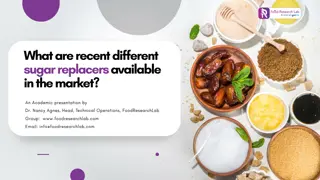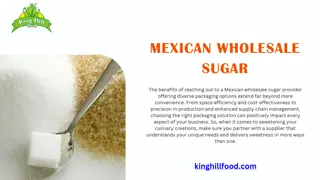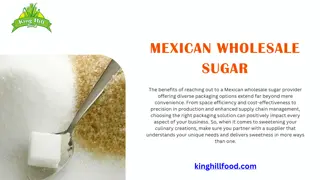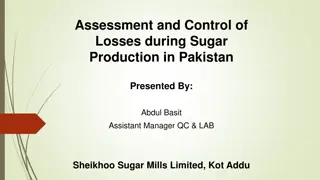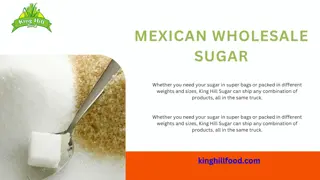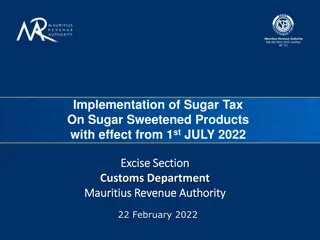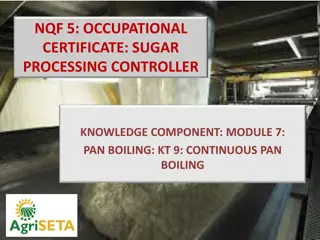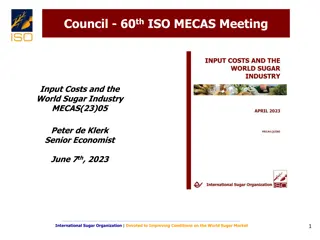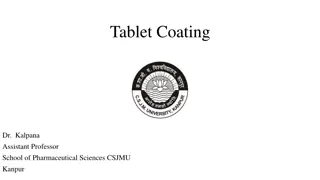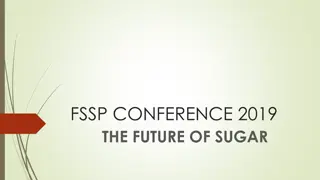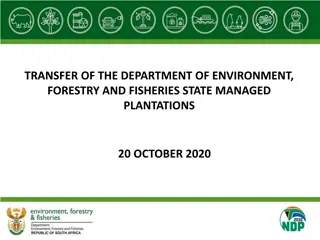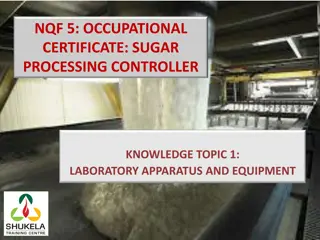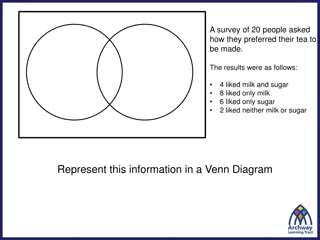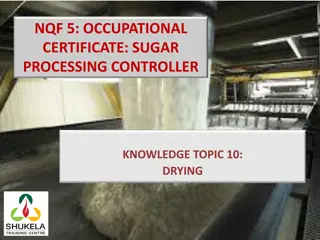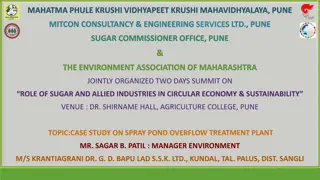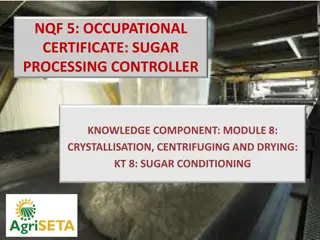Understanding the Dark History of Sugar Plantations
Explore the troubling history of sugar plantations, focusing on the harsh conditions faced by slaves, the production process of sugar, and the impact on the relationship between slaves and owners. Learn about the dangerous working conditions and the significance of sugar in European trade during the 18th to 20th centuries.
Download Presentation

Please find below an Image/Link to download the presentation.
The content on the website is provided AS IS for your information and personal use only. It may not be sold, licensed, or shared on other websites without obtaining consent from the author. Download presentation by click this link. If you encounter any issues during the download, it is possible that the publisher has removed the file from their server.
E N D
Presentation Transcript
Slavery and the sugar plantation
Learning Intentions Today I will learn about sugar plantations and what the slaves in them did. I will know I ve been if I can: successful Gather information on sugar plantations from both written and visual sources. Discuss the relationship between slaves and masters.
There were many different types of plantations in the Caribbean during the slave trade. Slaves (owned by the French and English) produced different products on each plantation like cotton, coffee and rice. BUT, what was the main crop produced on plantations throughout the 18th, 19th and 20th centuries? http://www.turq.com/maps/caribandcentralamerica.gif HINT: it goes in your tea........
Why would the Europeans want sugar? What would they use it for? http://www.fantompowa.net/Flame/slaves.antigua.jpg
TASK In your group, look at the three images in front of you...... 1. What is going on in the pictures? 2. What do the conditions look like? 3. What are the slaves doing? 4. How do you think the slaves feel? 5. Could you think of a modern day headline to go on a newspaper about the image? 15 MINUTES Remember to write your answers down.
How was sugar produced? Cutting Crushing Planting Molasses Boiling http://upload.wikimedia.org/wikipedia/commons/f/f8/Appleton_Estate_Jamaica_Rum-with_glass.jpg Rum SUGAR Curing
How dangerous do you think it was to produce sugar? "The story of sugar was not all sweetness. If a Boyler gets any part into the scalding Sugar, it sticks like Glew, or Birdlime, and 'tis hard to save either Limb or Life."
TASK Think about what we have already discussed about how sugar was made, what the conditions were like for slaves and what slaves were made to do. Think now about how these conditions affected the relationship between slaves and their owners 20 MINUTES Look at the primary quotes and secondary historians quotes on your worksheet. Answer the questions in your textbook.
http://www.youtube.com/watch?v=IO Z0kmgU39U
Youre on 125,000 with all life lines still left to use.........Ready for your next question?
Question 13: How was sugar made?
How was sugar made? A Boiling -> Cutting -> Crushing -> Planting -> Molasses -> Curing -> Rum -> SUGAR B Planting -> Crushing-> Cutting -> Boiling -> Curing -> Rum -> Molasses -> SUGAR C Planting -> Cutting -> Crushing -> Boiling -> Molasses -> Rum -> Curing -> SUGAR D Planting -> Cutting -> Crushing -> Molasses -> Boiling -> Rum -> Curing -> SUGAR
Congratulations. You re now on 250,000. Here s your next question.....
Question 14 What did the slaves use to cut down the sugar cane?
What did the slaves use to cut down the sugar cane? A Tom B Harry C Sill D Bill
Thats 500,000.....Can you answer the final question to win yourselves 1 million??
Question 15 What was Act 82?
What was Act 82? A A master may imprison his slave for stealing Molasses B A master may flog a negro of his own for drinking rum .. C A master may wilfully kill a negro of his own D A master present their slaves with a bottle of rum at the end of every month ..
CLASS . S





